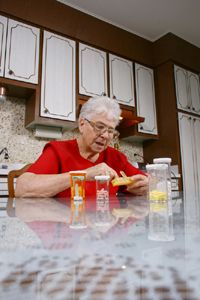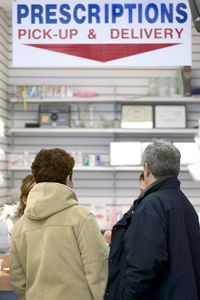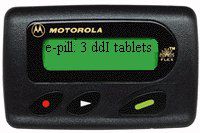"Hi, Mom. Did you remember to take your pills this afternoon?" Tracking an elderly parent's care long distance isn't easy, but it's something many adult children find themselves doing.
"Drat. I forgot again." Back from a meeting, juggling a new account, thinking about a child's science project, trying to balancing everything, it's hard to remember early afternoon medication on a week day.
Advertisement
Daily medications are just part of life for millions of Americans, particularly the elderly. And so is trying to remember to take those medications and have refills on hand at the right time. Prescription alerts help make that easier by reminding when it's time to take, reorder and pick up prescription drugs.
Taking two pills a day for two weeks to fight an infection isn't too difficult. But add more pills for several different conditions daily, plus a busy schedule or elderly forgetfulness, and prescription reminders make a lot of sense. Some 32 million Americans take three or more medications daily [source: American Heart Association].
Consider also that almost 80 percent of older adults live with one or more chronic conditions -- and many take several medicines at a time. But even with only one regular drug, prescription pick-up alerts can help keep that medication on hand [source: National Council on Patient Information].
Prescription alerts run the gamut from voice mail or e-notifications to specially designed watches or pagers. They can let you know when to reorder a drug, when to pick one up or when to take one -- whether you're at home or away. They can dispense only the right dose at the right time and let healthcare providers or family members know that the medication has been taken on schedule. They can even come with added features to help you manage specific conditions like diabetes or to exchange messages with your doctor.
But how do prescription alerts work? And which kind would be right for your needs? Let's start by exploring the purpose for these alerts.
Advertisement



